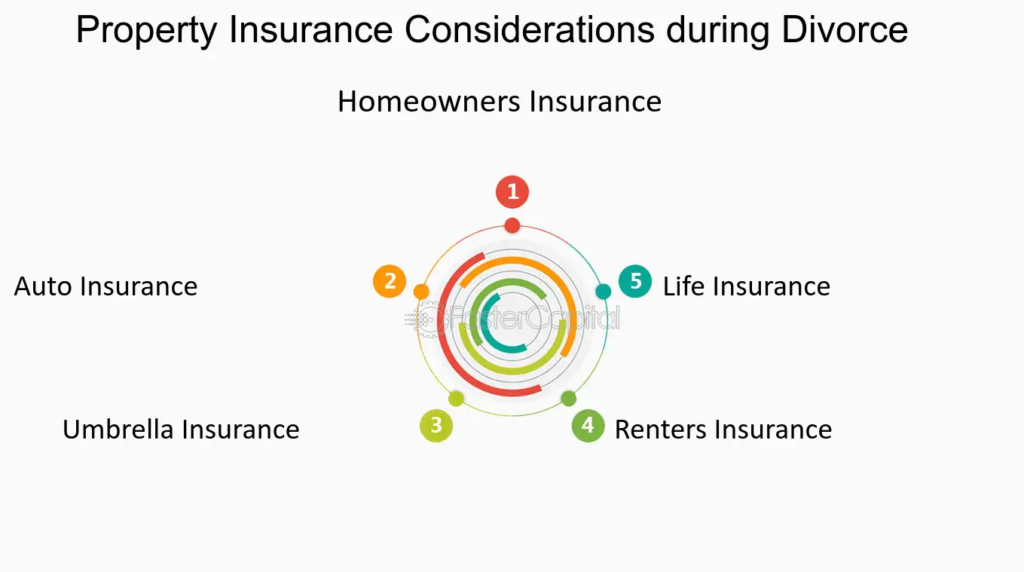Life insurance serves as a cornerstone of financial planning for individuals in various life stages, including divorcees. Divorce is a significant life event that can have far-reaching financial implications, making it essential for divorcees to assess their financial situation carefully and take steps to protect themselves and their dependents. In this elaboration, we’ll delve into the importance of life insurance for divorcees, exploring the specific considerations they should keep in mind and how life insurance can provide financial security during transitions.

Understanding the Importance of Life Insurance for Divorcees:
1.1 Financial Obligations:
Divorce often entails financial obligations such as alimony, child support, and the division of assets. Life insurance can play a crucial role in ensuring that these obligations are met, even in the event of the insured’s death. By naming the ex-spouse or children as beneficiaries, life insurance proceeds can provide a source of income to cover these financial commitments, offering peace of mind to both parties involved.
1.2 Protecting Children:
For divorcees with children, life insurance is vital for ensuring their well-being and financial security. The death of a parent can have significant financial ramifications, particularly if the deceased parent was the primary breadwinner. Life insurance proceeds can help replace lost income, cover childcare expenses, and fund education costs, ensuring that the children’s needs are adequately met even after the divorce.

1.3 Replacing Lost Income:
Divorce often results in a reduction in household income for both parties involved. Life insurance can help mitigate the financial impact of this loss by providing a source of income to the surviving ex-spouse or dependents. Whether through a lump-sum payout or regular income payments, life insurance can help maintain the standard of living for the family and ease the financial transition post-divorce.
1.4 Covering Debts:
Divorce may also lead to the division of assets and liabilities accumulated during the marriage. Life insurance can be used to cover outstanding debts such as mortgages, car loans, or credit card debt, ensuring that these financial obligations are not a burden on the surviving spouse or family members. By naming creditors as beneficiaries or using life insurance proceeds to settle debts, divorcees can achieve financial independence and peace of mind.
2. Considerations for Divorcees when Purchasing Life Insurance:

2.1 Assessing Coverage Needs:
One of the first steps for divorcees considering life insurance is to assess their coverage needs. This involves calculating current and future financial obligations, including alimony, child support, outstanding debts, and ongoing expenses. Additionally, consider factors such as the age of dependents, educational expenses, and any other financial goals you wish to achieve. A comprehensive understanding of your financial situation will help determine the appropriate amount and type of life insurance coverage needed.
2.2 Updating Beneficiaries:
After a divorce, it’s crucial to review and update the beneficiaries on any existing life insurance policies. In many cases, ex-spouses are named as beneficiaries during marriage and may still be designated even after divorce if changes are not made. To ensure that life insurance proceeds are distributed according to your wishes, update beneficiaries accordingly, considering the needs of any dependents or new family members.
2.3 Term vs. Permanent Insurance:
Divorcees should also consider whether term life insurance or permanent life insurance is more suitable for their needs. Term life insurance provides coverage for a specified period, typically ranging from 10 to 30 years, and is often more affordable than permanent insurance. It may be suitable for covering temporary financial obligations such as child support or alimony payments. On the other hand, permanent life insurance offers lifelong coverage and may include a cash value component that can be used for investment or savings purposes. Evaluate the pros and cons of each type of insurance based on your long-term financial goals and budget.
2.4 Policy Ownership:
Another important consideration for divorcees is the ownership of the life insurance policy. During marriage, it’s common for one spouse to own the policy with the other spouse as the insured or beneficiary. However, after divorce, ownership arrangements may need to be revised to reflect changes in circumstances. Consider whether transferring ownership of existing policies or purchasing new ones under your name is necessary to maintain control over the policy and ensure that your wishes are honored.
2.5 Review Existing Policies:
Divorce is a significant life event that may necessitate a review of existing life insurance policies. Evaluate whether the coverage amounts and beneficiaries designated on these policies still align with your post-divorce financial goals and obligations. You may need to adjust coverage amounts, update beneficiaries, or purchase additional policies to ensure adequate protection for yourself and your dependents. Working with a financial advisor or insurance specialist can help you navigate this process and make informed decisions based on your individual needs.
2.6 Seek Professional Advice:
Navigating the complexities of life insurance as a divorcee can be challenging, especially when considering the various financial implications involved. Seeking guidance from a financial advisor or insurance specialist can provide valuable insights and help you make informed decisions tailored to your specific situation. An experienced professional can assess your coverage needs, explore different insurance options, and provide recommendations that align with your long-term financial goals and objectives.
Conclusion:
Life insurance is a critical component of financial planning for divorcees, offering protection and security during times of transition. By understanding the importance of life insurance and considering the specific considerations outlined above, divorcees can safeguard their financial futures and ensure that their loved ones are adequately protected. Whether it’s meeting financial obligations, protecting children, or replacing lost income, life insurance can provide the peace of mind and financial security needed to navigate the challenges of divorce and move forward with confidence.



